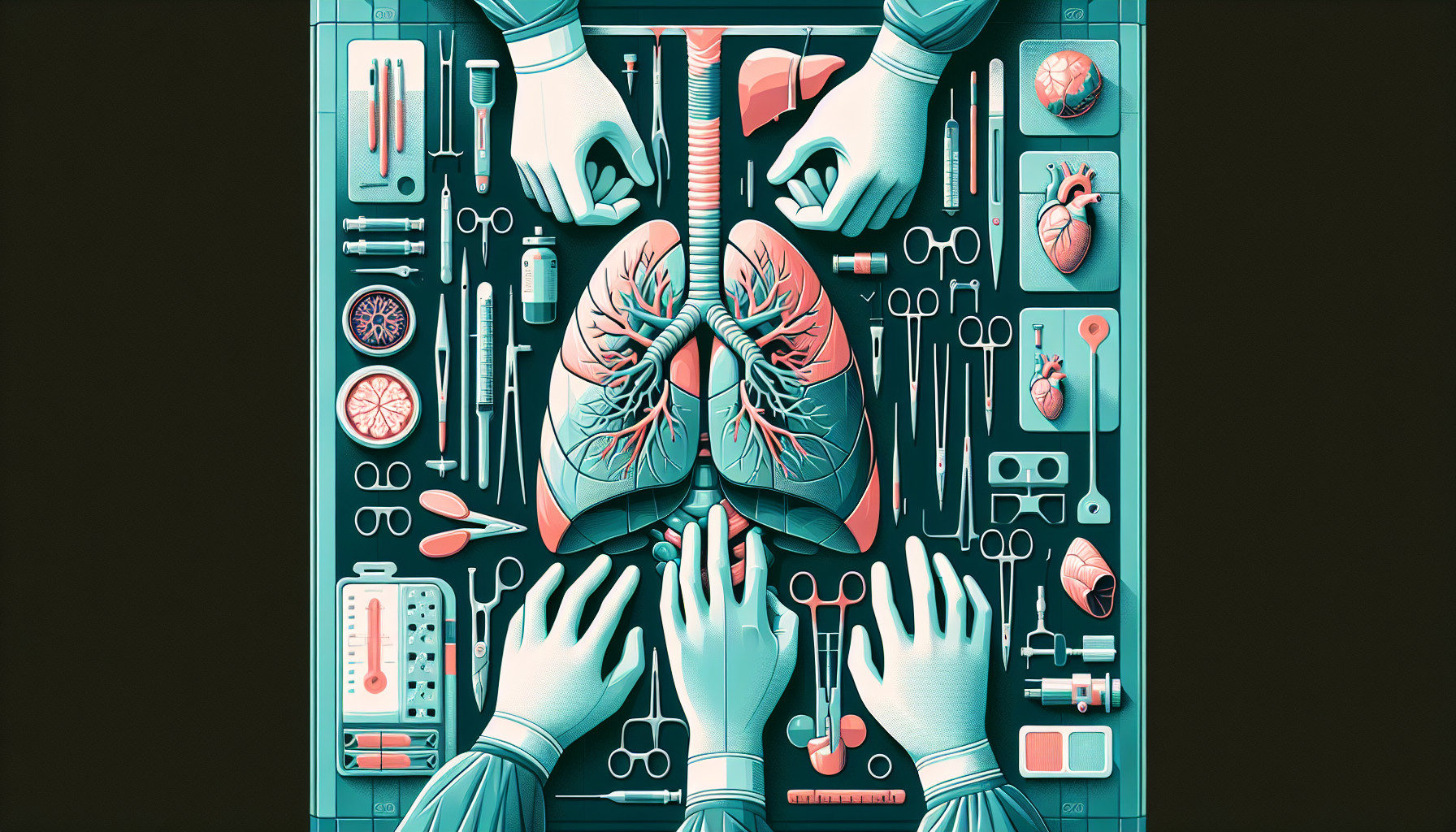Our Summary
This research paper is about a study that was conducted to investigate the survival rates of high-risk patients with early-stage lung cancer who undergo different types of surgery. In a previous trial, it was found that a less invasive surgery, called sublobar resection, had better results than a more invasive surgery, called lobectomy.
However, this study found that this isn’t always the case, especially for high-risk patients. It was found that while the less invasive surgery might be more suitable for patients with a reduced ability to transfer carbon monoxide in their lungs, the more invasive surgery could be better for female patients and those with a high level of a certain protein (carcinoembryonic antigen) that is often higher in cancer patients.
In conclusion, the study suggests that the type of surgery should be chosen based on the patient’s individual characteristics and the need for ongoing monitoring of the lung cancer.
In simpler terms, this study is saying that there isn’t a one-size-fits-all approach to treating early-stage lung cancer. The best method of treatment can depend on many factors, including the patient’s overall health and the specifics of their cancer.
FAQs
- What is the main difference between sublobar resection and lobectomy?
- Which type of surgery might be more suitable for patients with a reduced ability to transfer carbon monoxide in their lungs?
- How might a patient’s individual characteristics influence the choice of surgery for early-stage lung cancer?
Doctor’s Tip
One helpful tip a doctor might tell a patient about lung resection is to have a thorough discussion with their healthcare team about the different types of surgeries available, the risks and benefits of each, and how it may specifically apply to their individual situation. It’s important for patients to be informed and actively involved in the decision-making process when it comes to their treatment plan.
Suitable For
Patients who are typically recommended for lung resection are those with early-stage lung cancer who are considered high-risk due to factors such as reduced lung function, gender, and specific protein levels. The type of surgery recommended may vary depending on the individual characteristics of the patient and the need for ongoing monitoring of the cancer. It is important for healthcare providers to consider these factors when determining the most appropriate treatment approach for each patient.
Timeline
Before lung resection:
- Patient is diagnosed with early-stage lung cancer through imaging tests and biopsies.
- Patient discusses treatment options with their healthcare provider, including the possibility of surgery.
- Patient undergoes pre-operative tests to assess their overall health and fitness for surgery.
- Patient may undergo chemotherapy or radiation therapy to shrink the tumor before surgery.
- Patient meets with a surgeon to discuss the specific type of lung resection that will be performed.
After lung resection:
- Patient undergoes the lung resection surgery, either a lobectomy (removal of a lobe of the lung) or a sublobar resection (removal of a smaller portion of the lung).
- Patient recovers in the hospital for a few days to monitor for any complications.
- Patient may require pain management and physical therapy to aid in recovery.
- Patient undergoes regular follow-up appointments and imaging tests to monitor for any signs of cancer recurrence.
- Patient may undergo additional treatments, such as chemotherapy or immunotherapy, depending on the specific characteristics of their cancer and their overall health.
What to Ask Your Doctor
Some questions a patient should ask their doctor about lung resection include:
- What type of lung resection surgery do you recommend for me based on my individual characteristics and the specifics of my lung cancer?
- What are the potential risks and benefits of the different types of lung resection surgery?
- How will my recovery process differ depending on the type of surgery I undergo?
- Will I need ongoing monitoring or follow-up after the surgery, and if so, what does that entail?
- How will the type of surgery impact my long-term prognosis and survival rates?
- Are there any alternative treatment options to consider in addition to or instead of lung resection surgery?
- What is the experience of the surgical team with performing the type of surgery you recommend for me?
- Are there any lifestyle changes or precautions I should take before or after the surgery to improve my outcomes?
- How soon after the surgery can I expect to return to my normal activities and daily routine?
- Are there any clinical trials or research studies that I may be eligible for that could potentially impact my treatment plan?
Reference
Authors: Fukui M, Matsunaga T, Hattori A, Takamochi K, Nojiri S, Suzuki K. Journal: Eur J Cardiothorac Surg. 2024 Jan 2;65(1):ezad325. doi: 10.1093/ejcts/ezad325. PMID: 37756703
